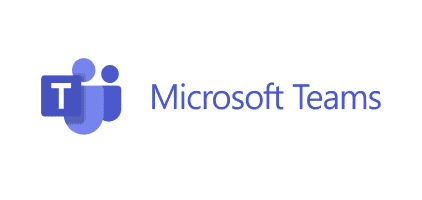Iserv has been a reliable connection for years! They communicate well. We hear from them when there is a planned outage. Those are rare, but they are usually scheduled for the off hours.
-
- Get our pricing sent into your inbox
-
Protect Your Business from Cyber Attacks with our Cybersecurity Services in Orlando
Get 24/7 protection with 99.9% threat detection accuracy, ensuring your business stays secure around the clock.
Our zero-trust security blocks 99.8% of unauthorized access, protecting your sensitive data from breaches.
90% of incidents are resolved within 15 minutes, minimizing downtime and ensuring fast recovery.
Encrypt data with 256-bit encryption, securing your information against 99.9% of cyber threats.
Discover how our clients transformed their security with our expert cybersecurity solutions.
Iserv has been a reliable connection for years! They communicate well. We hear from them when there is a planned outage. Those are rare, but they are usually scheduled for the off hours.
We’re incredibly impressed with our Iserv. Their team of engineers is not only highly skilled but also consistently delivers top-notch work. The staff is always friendly, approachable, and eager to help. The support they provide is exceptional, going above and beyond to ensure our needs are met. We couldn’t ask for a better partner!
Responsive, Reliable, team always available to help with any questions. Always grateful to be a customer.
With 30+ years of expertise, our cybersecurity services are customized to protect your business, providing seamless, end-to-end security solutions to keep your data safe and operations secure.
























Protect your business with around-the-clock, proactive threat detection, ensuring immediate response to potential cyber threats before they become a problem.
Tailored cybersecurity strategies designed to meet your unique business needs, safeguarding your sensitive data and minimizing risk with expert precision.
With 30+ years of industry experience and NPS scores consistently above 95%, our services ensure reliable protection and peace of mind for your business.

We provide integrated cybersecurity solutions tailored to your IT environment, expertly addressing modern threats for seamless and transformative protection.
Cloud environments are often vulnerable to data breaches and cyberattacks without proper security measures in place.
Iserv fortifies your cloud infrastructure with advanced encryption, multi-layered defense, and real-time monitoring to safeguard sensitive data from unauthorized access and threats.
Malware can compromise your systems, leading to data loss, downtime, and costly repairs.
Our antivirus protection utilizes the latest threat detection technologies, ensuring your devices remain malware-free, with automatic updates and proactive scanning for zero-day threats.
Weak network security can leave your business exposed to cyberattacks, data theft, and system failures.
Our designs implement robust firewalls, intrusion detection systems, and secure VPNs to protect your network from unauthorized access and maintain secure data flow.
Remote work and mobile devices increase the risk of cyber threats targeting endpoints.
Iserv’s endpoint protection secures every device connected to your network—whether on-site or remote—using encryption, patch management, and advanced threat prevention.
Phishing attacks are a leading cause of data breaches, often targeting employees through deceptive emails.
Our anti-phishing protection filters suspicious emails and educates your team with simulated phishing tests, ensuring they recognize and avoid these threats before they cause damage.

Iserv is Orlando’s top cybersecurity provider, delivering tailored protection with 30+ years of expertise.
Our proactive, 24/7 defense ensures your business is secure from every angle—network, cloud, and beyond. With 80% of our team as engineers, we provide top-tier service and respond instantly to threats before they impact your operations.
We prioritize customer-first relationships, building long-term partnerships through clear communication and custom solutions.
Backed by a proven track record, Iserv offers a one-stop IT shop, simplifying your operations and keeping your business ahead of evolving threats. Choose Iserv to stay secure, efficient, and future-ready.
Secure your business with our leading cybersecurity company. Get in Touch Today!
Dedicated IT services tailored to your business.
We have over 30 years of cybersecurity expertise, with more than 80% of our team being engineers who bring hands-on experience to your business.
Protect your systems proactively with customized, multi-layered security solutions tailored to your specific needs.
Rely on our 24/7 monitoring to prevent threats before they materialize. Our engineering-led approach ensures deep expertise and constant vigilance, keeping your business safe from both known and emerging cyber threats.
Expect rapid response when cybersecurity incidents arise. Our support teams are available 24/7 and respond within minutes via live voice, email, or chat.
Achieve a first-call resolution in 80% of cases, helping you minimize downtime and keep your business running smoothly.
Whether it’s a minor issue or a critical threat, rely on our team’s expertise to address and resolve the incident quickly and effectively.
Stay ahead of cyber threats with continuous adaptation to the latest security technologies and industry standards.
Maximize your protection with cutting-edge, managed cybersecurity services designed to evolve as new threats emerge. Stay caught up in a fast-changing landscape by leveraging our future-proof solutions, which integrate the latest tools, threat intelligence, and best practices, ensuring your business stays protected against ever-evolving risks.
Rely on the highest level of certification and industry-standard practices for every system we deploy.
Each service we offer is backed by fully certified professionals who ensure your systems are secure, compliant, and up-to-date with current cybersecurity regulations. Trust that our team follows best practices in all implementations, ensuring your business receives the highest level of protection from certified experts.
Yes, gain valuable insights into your IT infrastructure with a free IT Health Check and Network Security Audit.
Benefit from a thorough analysis that identifies hidden vulnerabilities and offers actionable recommendations to strengthen your security posture.
Avoid potential breaches by addressing weaknesses in your network before they become problems, ensuring your systems are fortified against existing and emerging cyber threats.
our support and network operations center is available 24/7/365.